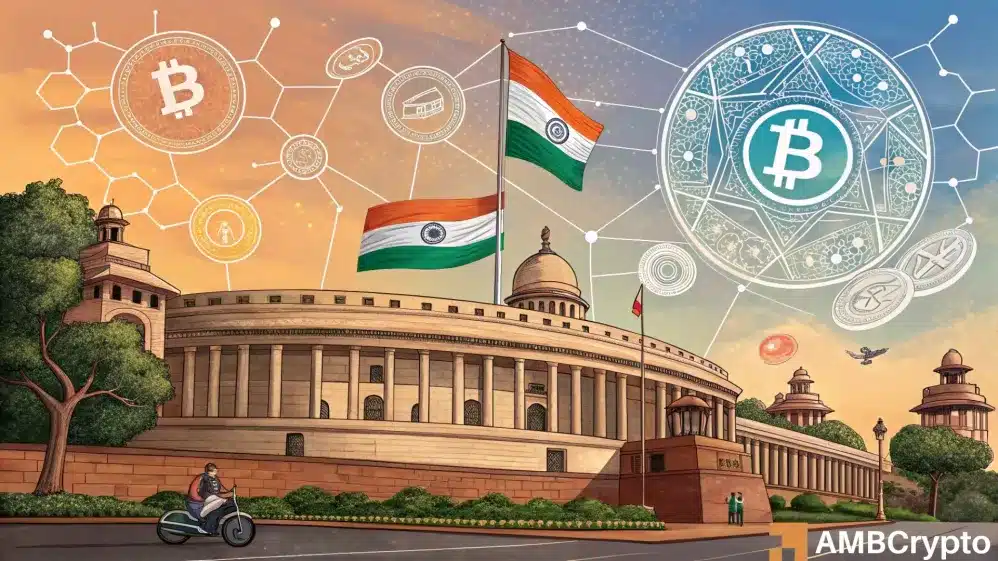With the rise of cryptocurrency adoption globally, many countries are rethinking their approach to digital assets.
This reevaluation has gained traction post the Donald Trump administration and its proposal for a ‘Strategic Bitcoin Reserve’.
The surge of Bitcoin [BTC] above $100,000 has sparked discussions on regulatory structures.
Yet, this changing landscape has caused delays, such as the postponement of a discussion paper on cryptocurrencies set to release in September 2024.
India’s Embrace of Cryptocurrency
Against this backdrop, India is reevaluating its cryptocurrency policies, with India’s Economic Affairs Secretary Ajay Seth stating,
“Several jurisdictions have altered their stance on cryptocurrency regarding usage, acceptance, and the significance of crypto assets. In this context, we are revisiting the discussion paper.”
Seth highlighted that cryptocurrencies transcend borders, making it difficult for India to take a unilateral position.
While not mentioning the United States directly, Seth’s comments follow Trump’s initiation of a cryptocurrency task force.
This group will devise new crypto rules and assess a national cryptocurrency reserve to back Trump’s policy revamp.
Review of India’s Cryptocurrency Stance
India’s growing prominence in the crypto sphere is increasingly apparent.
The nation topped the latest Chainalysis Global Crypto Adoption Index, showcasing significant activity on local exchanges, merchant dealings, and DeFi.
Currently, digital assets in India face a high 30% capital gains tax, without differentiation between short-term trading and long-term investment.
In response, legal experts like Supreme Court practitioner Amit Kumar Gupta criticized the tax policy as overly harsh.
Gupta noted authorities view cryptocurrencies as riskier than gambling, illustrating the government’s deep distrust of the industry.
Future Prospects
Jio Platforms’ launch of JioCoin on the Polygon [POL] network indicates major Indian firms adopting blockchain despite government caution.
Despite hurdles, Indian investors continue to participate actively in the crypto market, disregarding high taxes and strict regulations.
India’s growing involvement in digital assets suggests that resistance from regulators may not suffice to dampen adoption.
Therefore, as India grapples with balancing innovation and control, the direction of its cryptocurrency industry hinges on whether policymakers embrace a more progressive approach or persist with stringent regulation.

